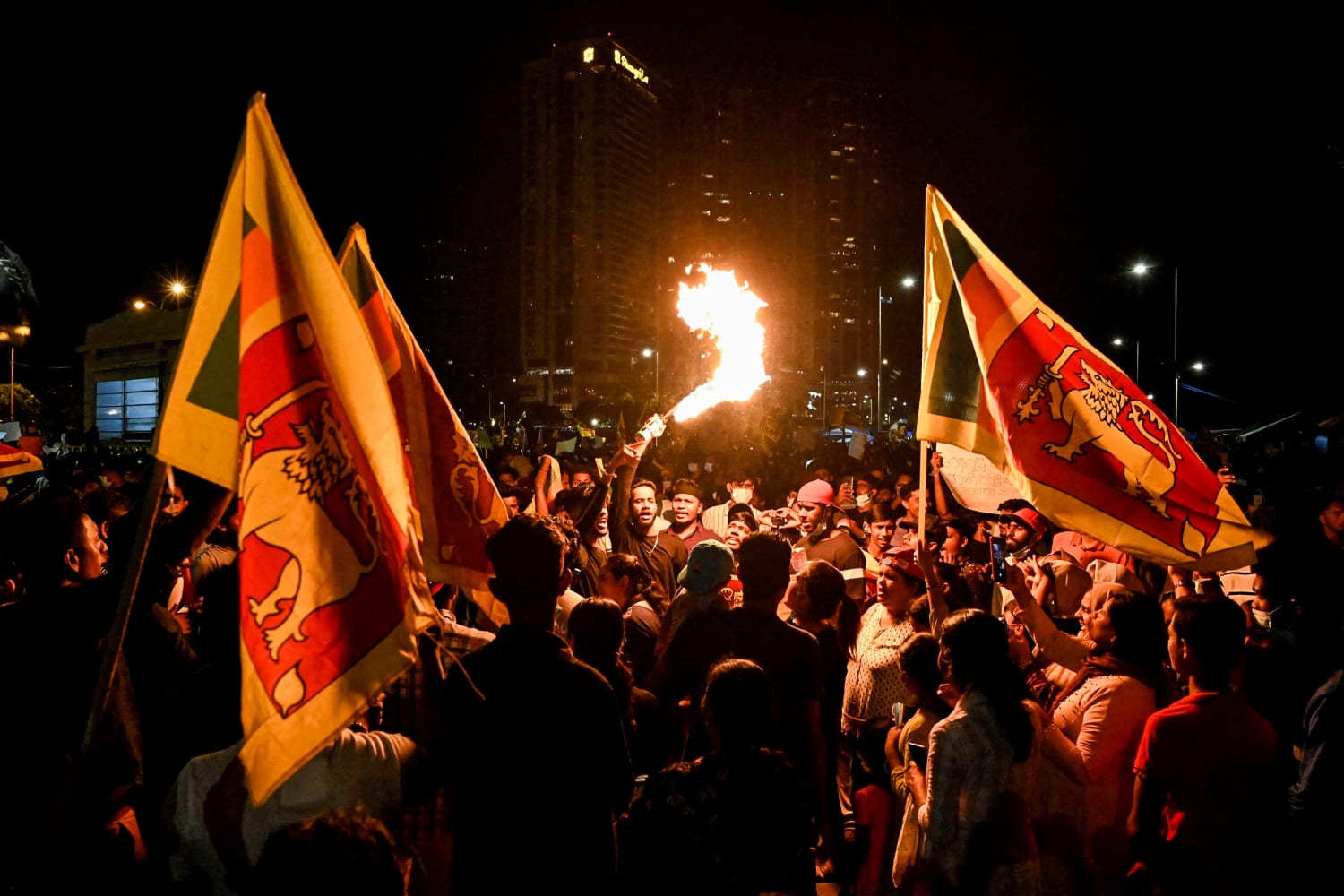
by Punsara Amarasinghe 14 May 2022
The overwhelming euphoria that erupted in Sri Lankan society in the aftermath of Gotabaya Rajapaksa’s massive political victory at the Presidential elections in 2019 was akin to the soliloquy of the Duke of Gloucester in Shakespeare’s Richard III, where the Duke hails the King by saying “Now is the winter of our discontent, made glorious summer by this sun York”. Contrary to the sanguine hopes that pervaded the people, Gotabaya Rajapaksa’s rule proved to be rather obtuse in addressing the basic needs of the people. The current, ongoing protest movements pressuring the president to resign is not a social resistance which arose out of the blue, but it is rooted in the crisis that the whole country has been facing since the outbreak of COVID 19.
In the light of such a political and economic Armageddon, the protest movements initiated by the people of Sri Lanka seem unique as they have risen as a voluntary force devoid of any political involvement. As a result, it may be worthwhile to investigate whether the current wave of protest movements in Sri Lanka has resulted in changes to its archetypical constitutional structure, which promotes absolute executive presidency. The authoritarian nature of the Constitution was further bolstered by the 20th Amendment to the Constitution, which was enacted in October 2020, leading to a steep increase in power around the executive president. It must be noted that the 20th Amendment witnessed significant opposition from a range of parties, including the constituent members of the government, as it went on to erode several progressive democratic reforms introduced by the 19th Amendment.
In ascertaining the present protest movements in Sri Lanka as a deceive step to rewriting its troubled Constitution, one needs to comprehend the nature of the constitutional moment and its effect on changing the basic structure of the Constitution. According to American constitutional theorist Bruce Akerman, a “constitutional moment” is any transformative event that occurs outside of the formal boundaries established by the Constitutional text. Nevertheless, Ackerman’s theory of “constitutional moment,” despite its academic astuteness, misses the importance of mass protest movements as a novel form of constitutional transformation. “Go Home Gota” is the cardinal slogan of the current protest movement, invoking the resignation of the president, Gotabaya Rajapaksa. In addition to that, people have aptly shown abhorrence toward the whole Rajapaksa clan and the entire political apparatus in the island nation, demanding that the entire 225 members of the legislature should go home. Even if it appears to be a rhetorical indicator of anarchy, the people’s outpouring of rage is understandable. Nonetheless, it raises a legitimate question regarding its effectiveness as a broader social upheaval that would usher in a new epoch for progressive constitutional transformation in the country.
The recent events that occurred globally have already provided a precedent to show how such mass protest movements can lead to colossal changes as “Constitutional moments”. Candlelight Protests in South Korea in 2016 against its president, Park Geun-Hye, for abuse of power; the Venezuelan protest movement in 2019 challenging President Juan Guaido’s autocratic regime; and the “smile revolution” led by Algerian youth to confront President Abdelaziz Bouteflika’s corrupt rule were typical examples of recent mass protest movements that paved the way for structural changes in those countries. Also, the audacity shown by the people of Chile last year gave birth to an autochthonous constitution, which can be regarded as an ideal constitutional moment.
One pertinent example illuminating all the above-mentioned countries is that all these countries resemble the executive presidential structure of Sri Lanka’s Constitution regardless of the diverse socio-cultural differences. Notwithstanding the absolute power vested in the president by the Constitution, the surge of mass protests disrupted the overarching political structure in those countries, which resulted in the ebb of autocratic rule. Moreover, it is worth noting that those people’s protest movements in South Korea, Venezuela, and Algeria sprang in a context where the political parties lacked a fervent ideological force to drive their citizens. Thus, the rigour of the protests became autonomous, embodying the people’s ardour to transform their political system, which signified a form of popular constitutionalism.
The current narrative chanted by the masses in Sri Lanka is “Go Home Gota”, a univocal demand for the president to step down. Yet, there is no palpable guideline that people tend to follow after ousting the president, which creates a sense of ambiguity about the scope of the movement, unlike the other recent protest movements in South Korea, Venezuela, and Algeria that contained salient expectations for broader constitutional changes. Taking into account Article 3 of the Sri Lankan Constitution, which enshrines the sovereign power of the people, a critical constitutional scholar can argue that the current wave of protest movement is a manifestation of the people’s sovereignty. However, the success of this current protest movement depends on the robustness of the democratic institutions and their reaction to people’s demands. The current mass protest movement in Sri Lanka can simply become a beacon as a constitutional moment if it can be grounded in a structured constitutional change process like abolishing the whole idea of the executive presidency. In general, the whole success of this wave is based on the people’s zealousness to participate in broader constitutional change, as it occurred in Chile last year. History has always shown how mass protest movements can be beguiling efforts when they collide with political movements that have often led to people’s losing their ubiquitous constitutional goals or creating an unprecedented level of political instability in the country.
